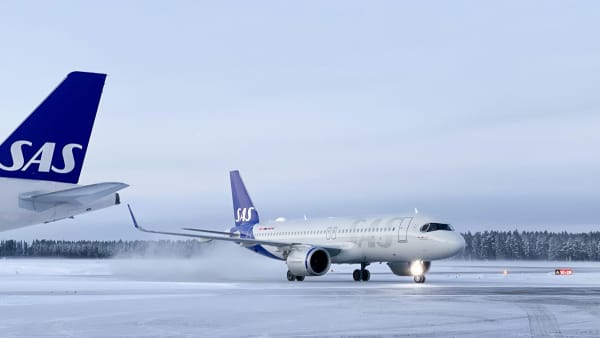Career Progression in Air Traffic Control
In the dynamic, fast-paced world of aviation, Air Traffic Control (ATC) plays a crucial role in regulating the orderly flow of aircraft in the skies and airports around the globe. Working behind the scenes, air traffic controllers ensure the safety and efficiency of air travel. But have you ever wondered about the career progression within this challenging yet rewarding profession? If you have an interest in aviation, enjoy making decisions under pressure and are drawn to a career with definite progression prospects, read on. In this post, we will delve into the path of professional growth within the domain of Air Traffic Control.
What Does An Air Traffic Controller Do?
Before discussing career progression, it's essential to understand the role of an air traffic controller. These highly trained professionals manage and maintain the safe passage of aircraft on the ground and in the air. Their central focus is to prevent collisions, direct traffic during takeoff and landing, and assist pilots in emergencies. The job is demanding and high-stakes, requiring precision, quick decision-making, and excellent communication skills.
The Foundation: Education And Training
To begin a career in Air Traffic Control, a bachelor's degree or at least three years of work experience is typically required. In the US, prospective controllers must also complete the Air Traffic-Collegiate Training Initiative (AT-CTI) program. Moreover, a passed Air Traffic Standardized Aptitude Test (ATSAT) is necessary.
Once these requirements are met, candidates undergo training at the FAA Academy. Here they gain in-depth knowledge about air traffic control procedures, use of radar and visual displays, laws and regulations, and honing in on high-decision density skills required for the job. Thorough training forms the bedrock for ATC career progression.
Roles In Air Traffic Control
The world of Air Traffic Control is quite hierarchical. Here's a typical career progression pathway with roles that one can expect to move through:
Trainee Air Traffic Controller: Fresh out of the training academy, ATC professionals first step into their career as trainees, where they are closely supervised while they learn and apply their skills in real-world scenarios.
Air Traffic Controller: Once proficient, trainees transition into the role of air traffic controllers. They might start in small regional airports, eventually moving onto larger, busier airports.
Specialist Controller Roles: As an air traffic controller gains experience and demonstrates excellence, they can advance into specialist roles like Approach Controller or Area Controller. These roles involve managing aircraft in the vicinity of airports or across larger airspace regions, respectively.
Shift Supervisor: Controllers with outstanding skills and experience may progress into Shift Supervisor roles, overseeing a team of air traffic controllers.
Unit or Operations Manager: This role involves leading a specific operational unit within air traffic control. They are responsible for managing daily operations, strategic planning, workforce management and ensuring safety regulations are met.
Developing Your Career In ATC: Knowledge, Skills, and Experience
Navigating a successful career in Air Traffic Control involves nurturing your skills and broadening your knowledge base. Here are some strategies to accelerate your career progression in this field:
On-The-Job Experience: As with most professions, the more hands-on experience you gain, the more your competency and reliability increase. In a high-pressure field like ATC, this deepens trust in your abilities.
Continuous Learning and Development: Aviation technology and regulations are constantly evolving. Engaging in continuous learning, completing further training, and staying updated with changes in the industry can take you a long way in your ATC career.
Networking: Making connections within the aviation industry gives you exposure to different perspectives, learn about new opportunities, and keeps you in the loop with industry trends and innovations.
Leadership Skills: As you advance into supervisory or managerial roles, honing your leadership skills – decision making, team management, critical thinking, and problem-solving – is crucial.
Professional Certification: In the US, obtaining a certification from the Federal Aviation Administration (FAA) boosts your maintaining pace with industry standards and increasing your employability.
Beyond Traditional Roles: Advanced Opportunities In ATC
Beyond traditional progression, there's an array of advanced opportunities within ATC. Controllers can diversify into training and mentoring new recruits, take part in disaster response planning or policy formulation, or even branch into consulting.
With the advent of new technologies, roles related to ATC systems development and air space design also provide attractive directions for progression. Expert controllers can even transition to international roles, such as working with the International Civil Aviation Organization (ICAO) or the European Organisation for the Safety of Air Navigation (EUROCONTROL).
In conclusion, a career in Air Traffic Control offers a wealth of opportunities for growth, provided one is willing to continuously learn, adapt and grow. Despite its rigorous demands, the path of career progression in ATC is one of constant learning, real-world impact, and a high level of job satisfaction.
Remember: Every journey starts with a single step. If you're fascinated by the world of aviation and have an Aptitude for high-stakes decision making, a career – and long-term growth – in Air Traffic Control could be waiting for you.
Relevant Links:




